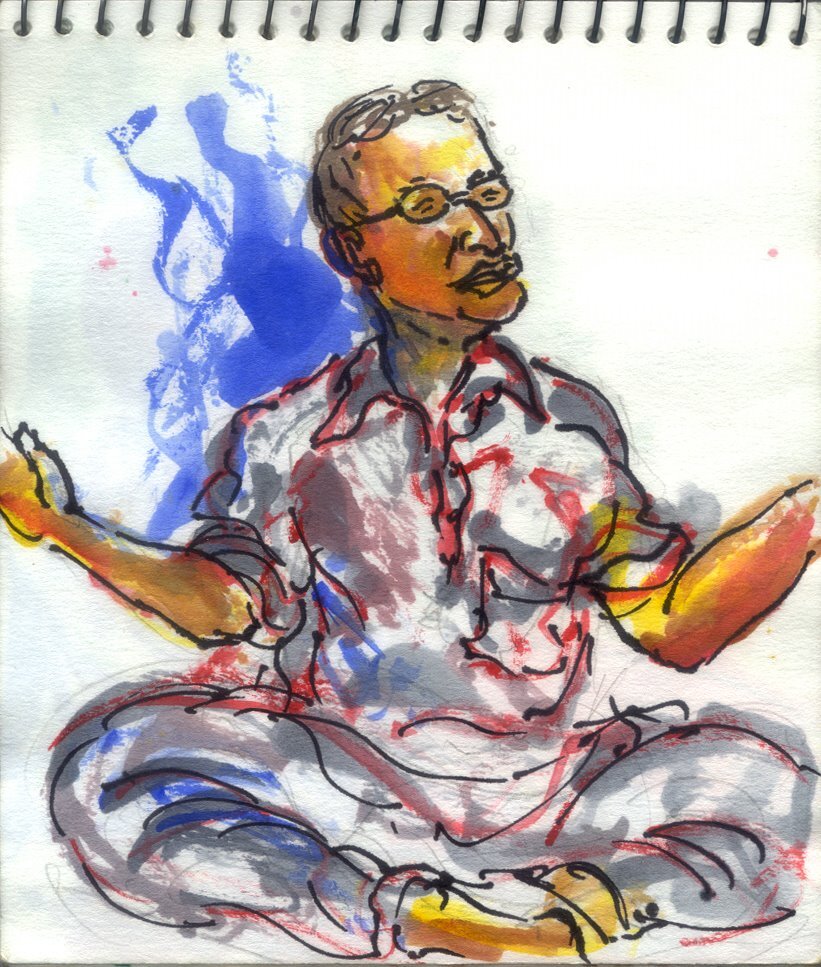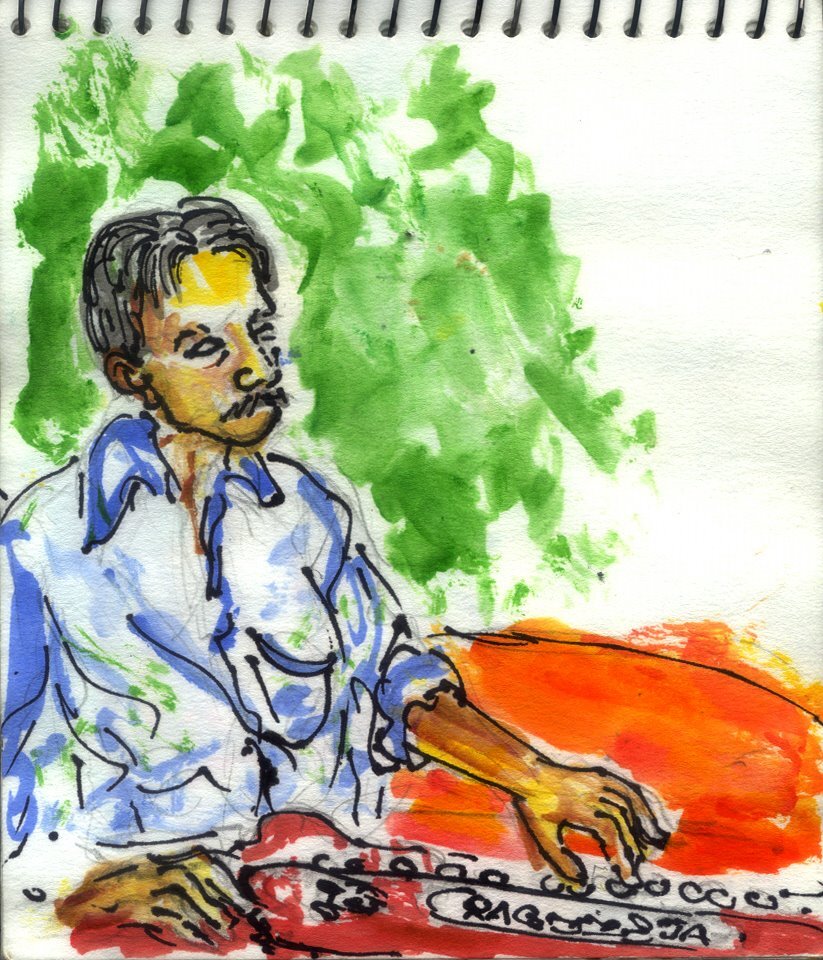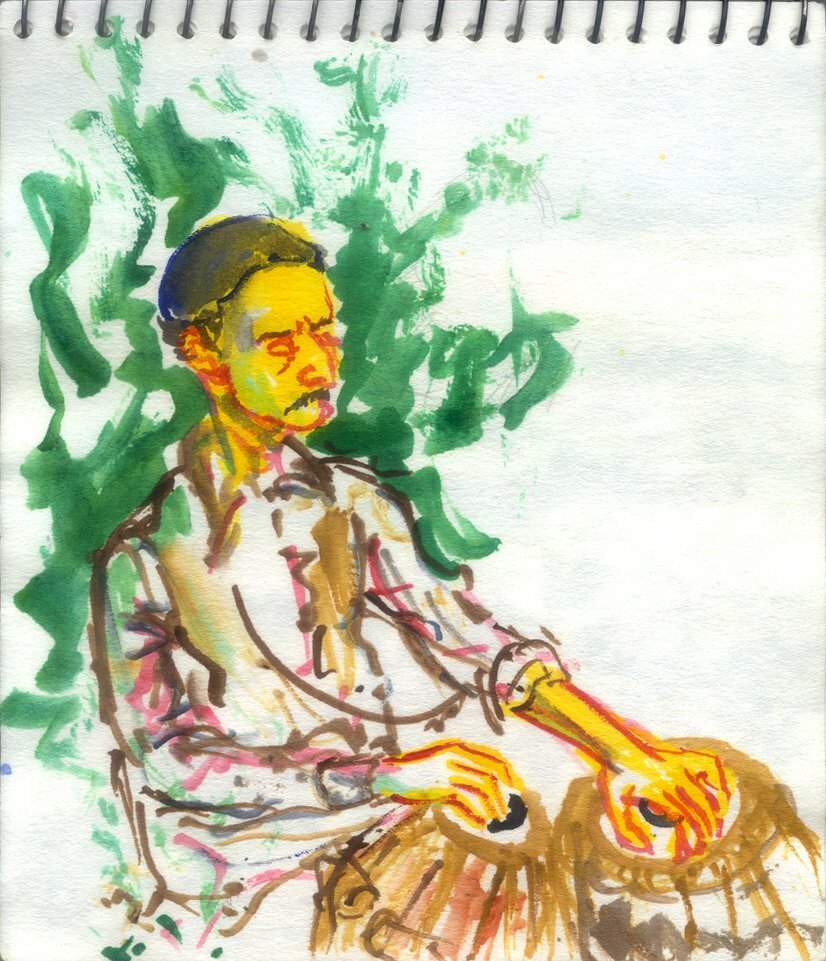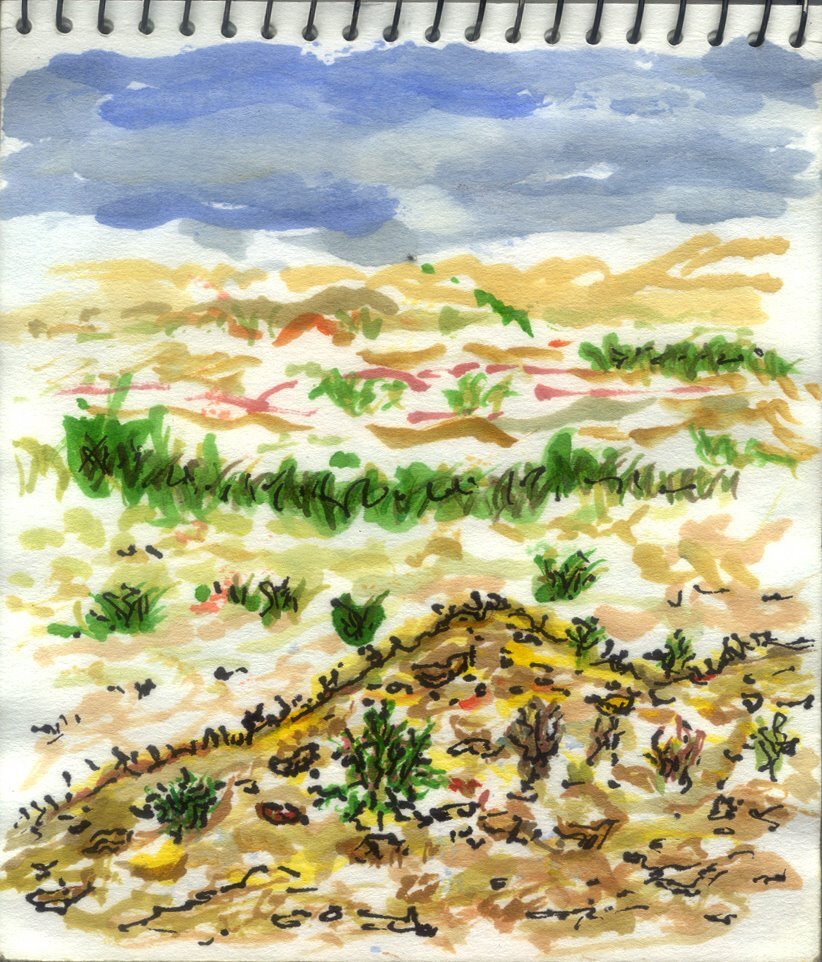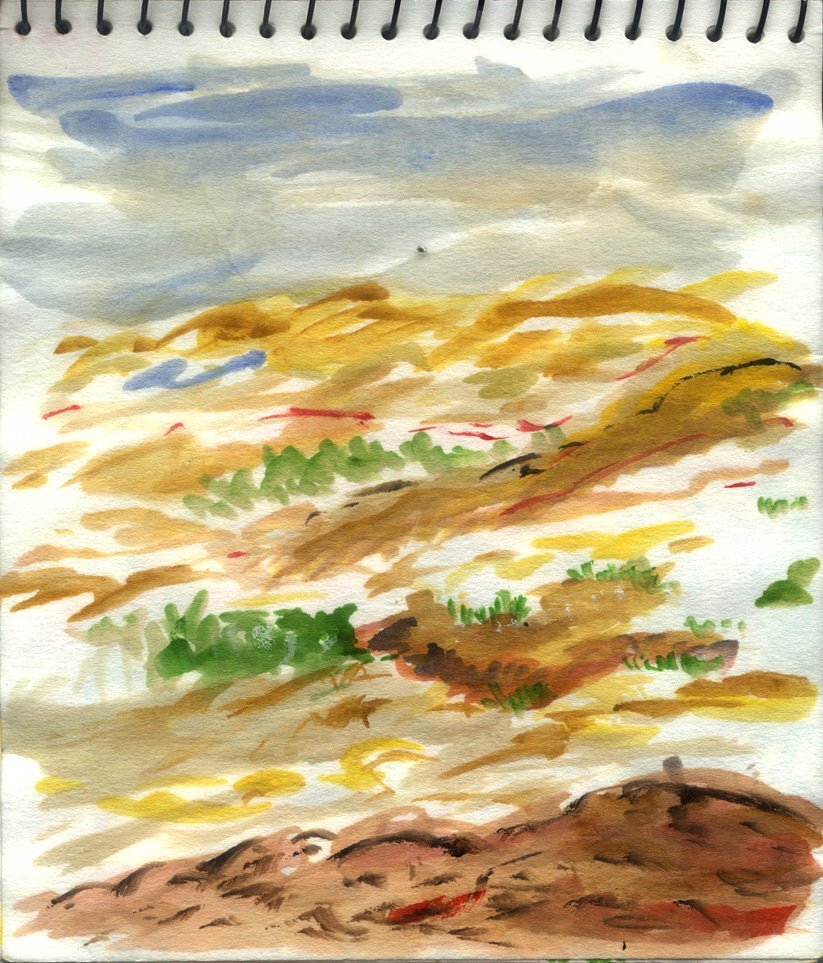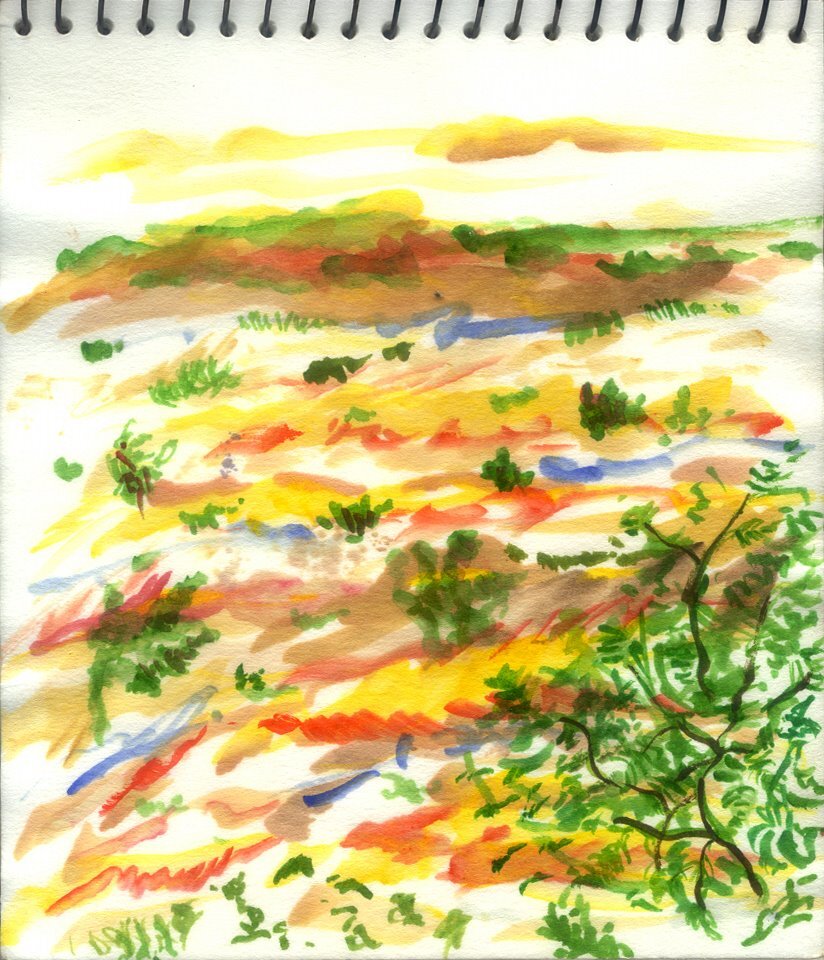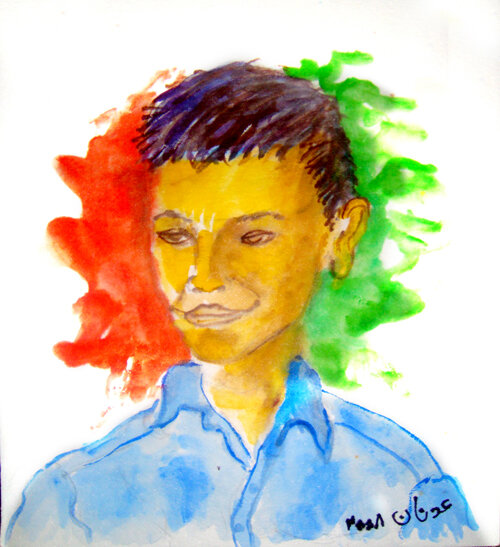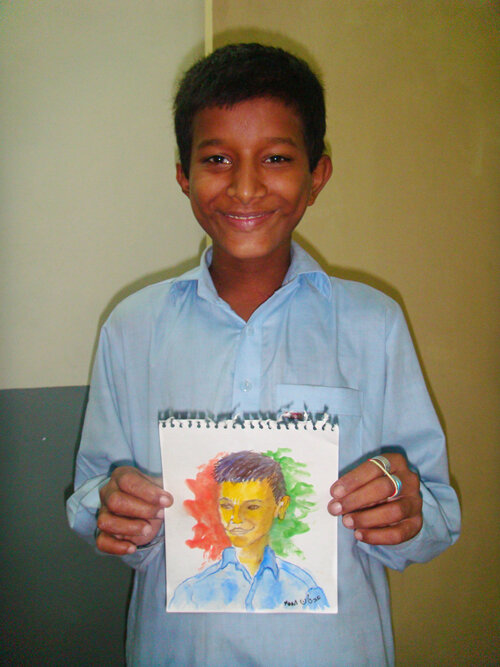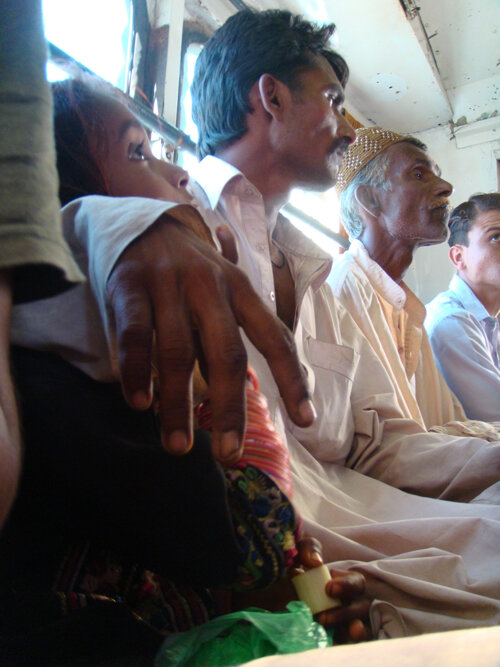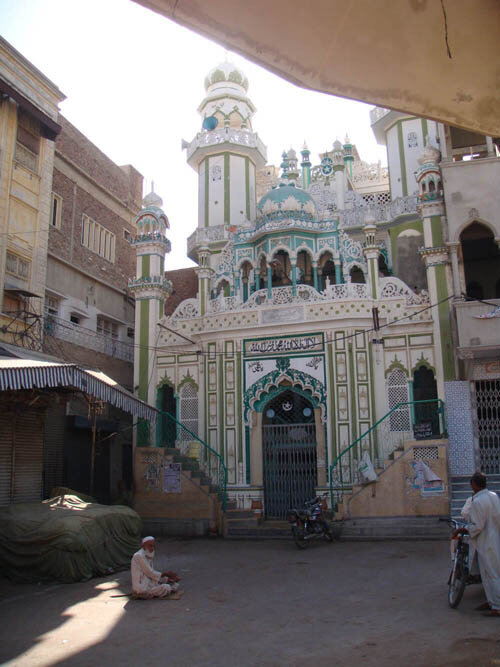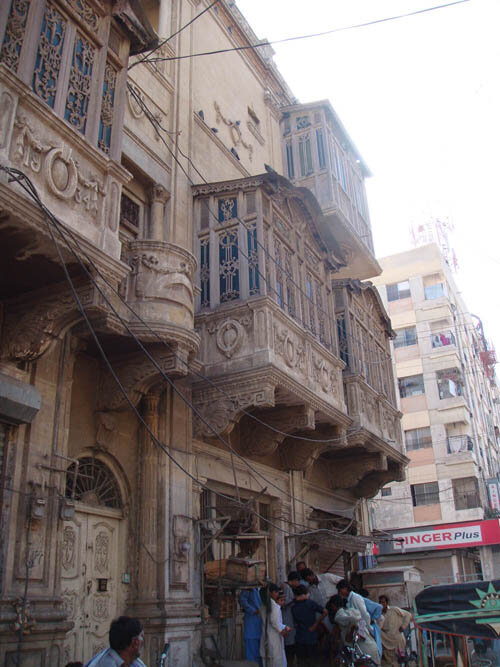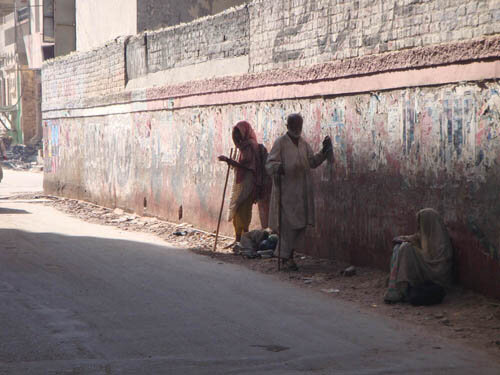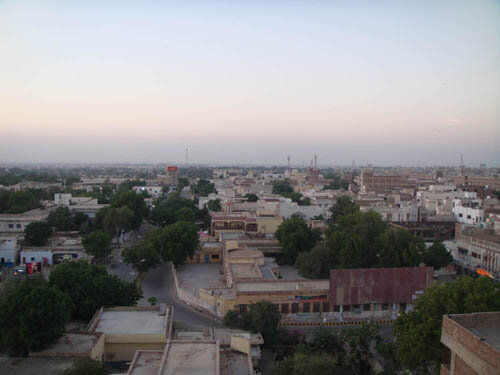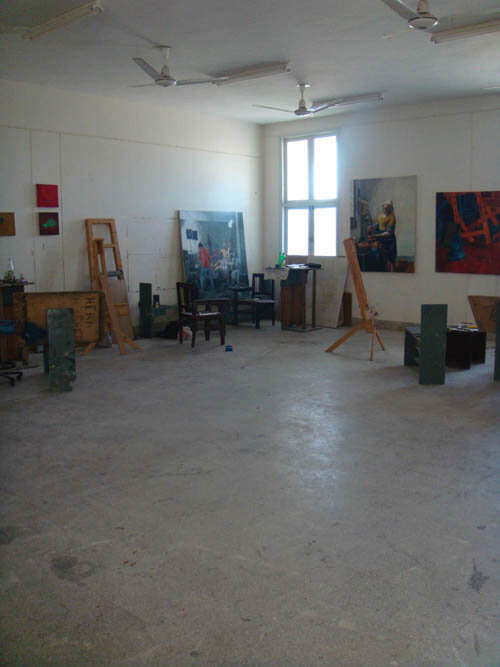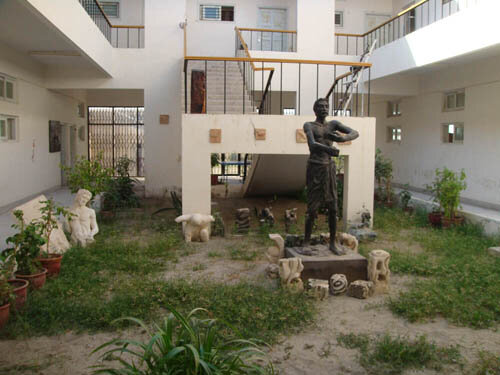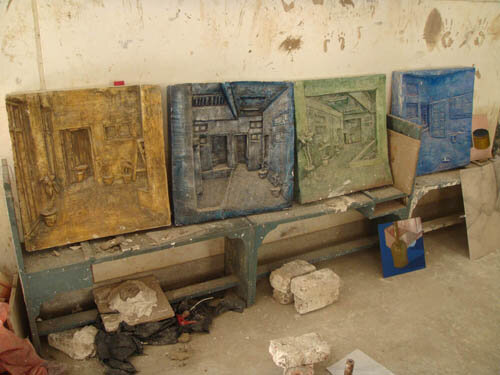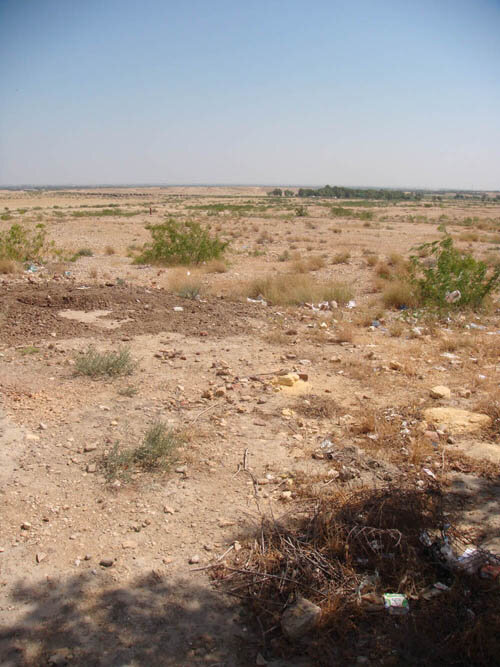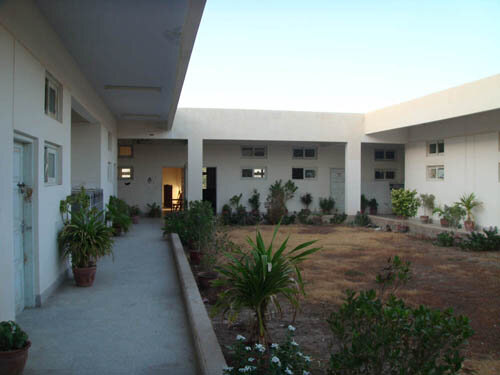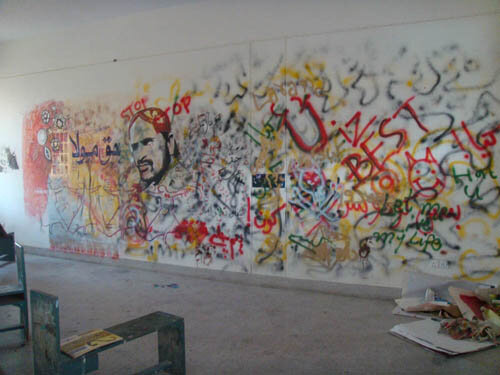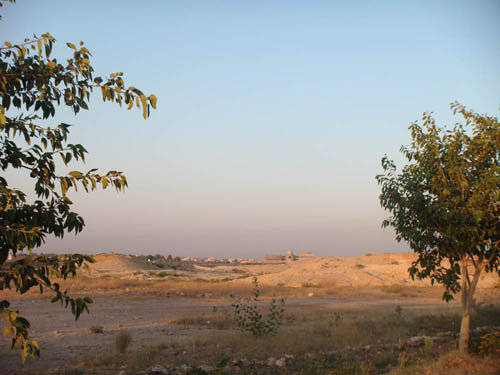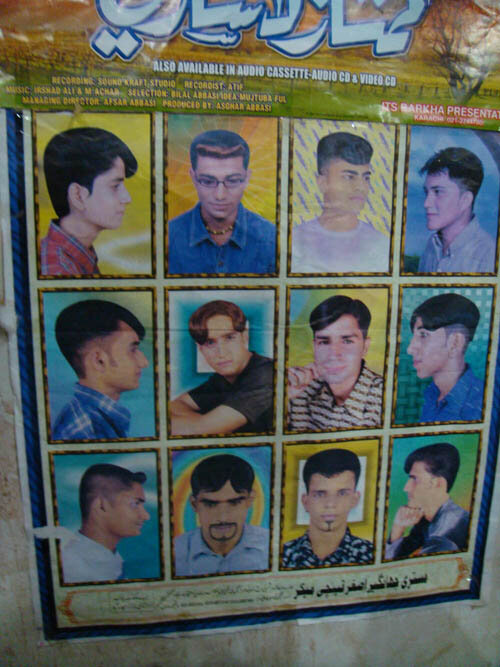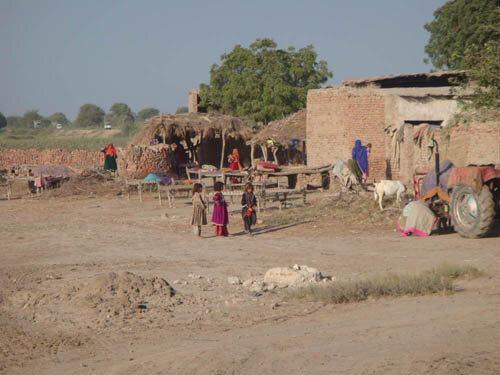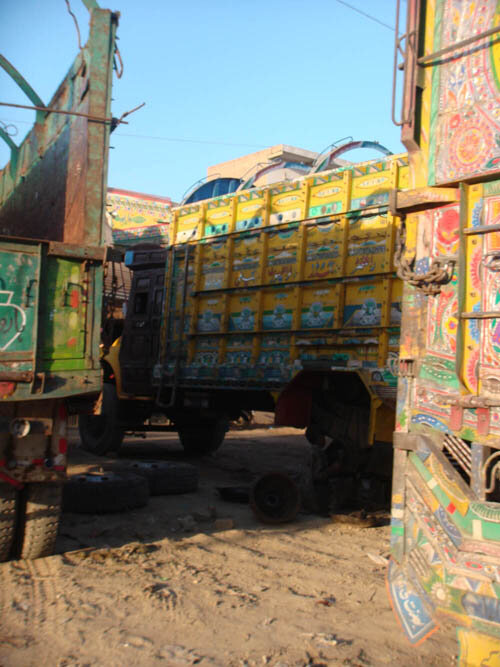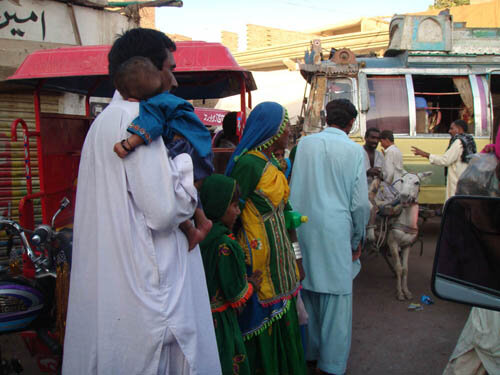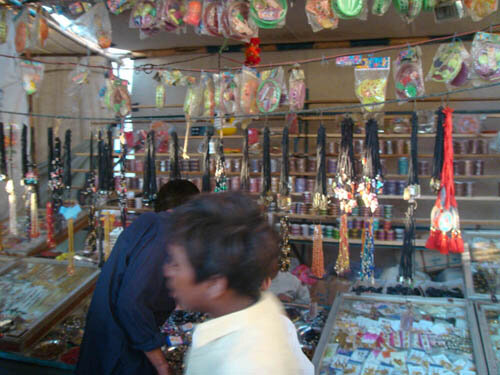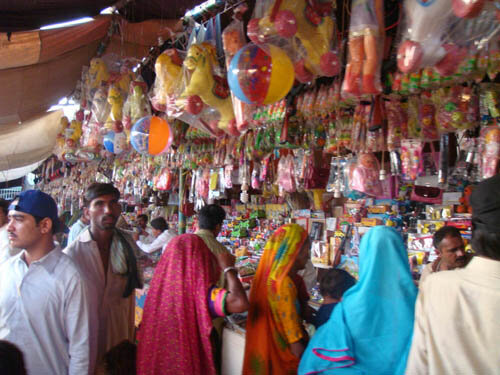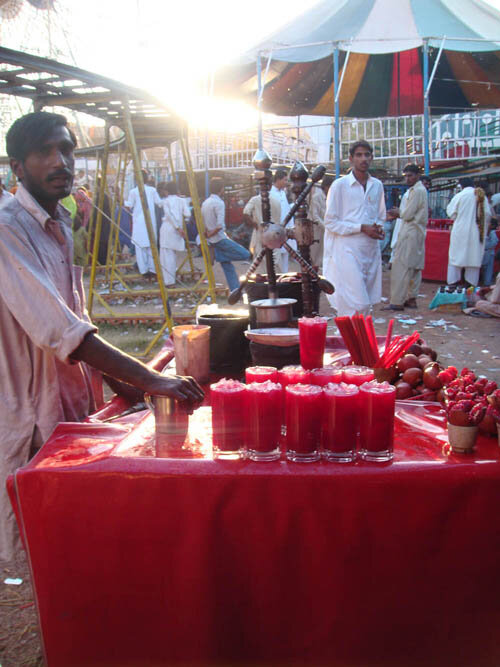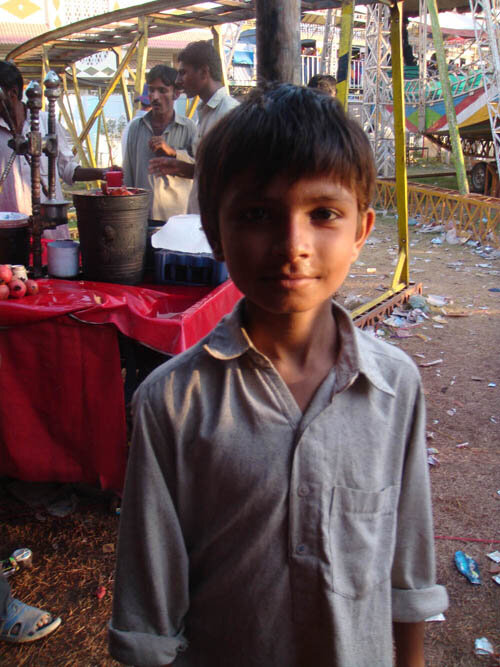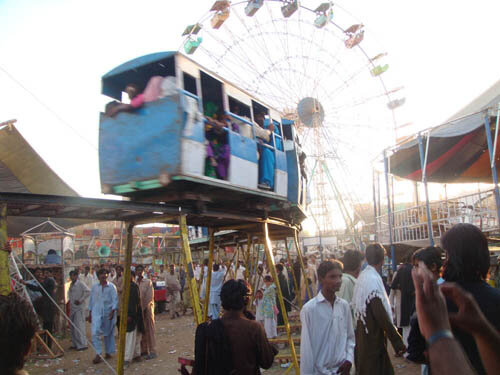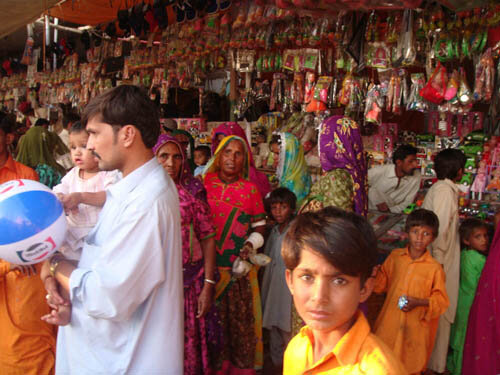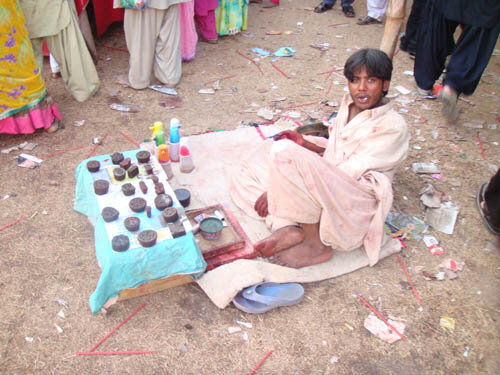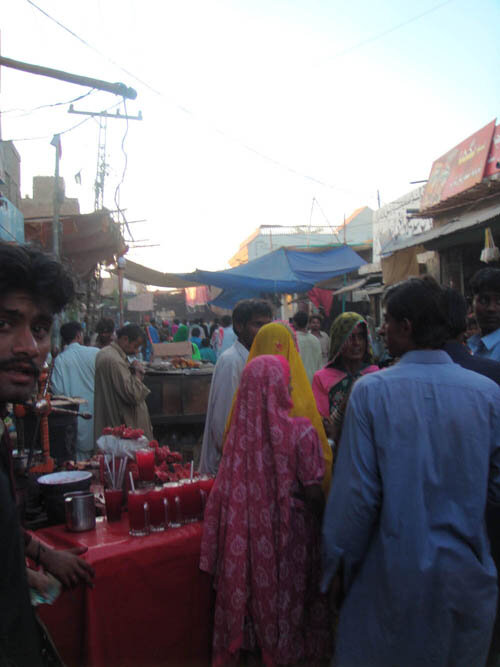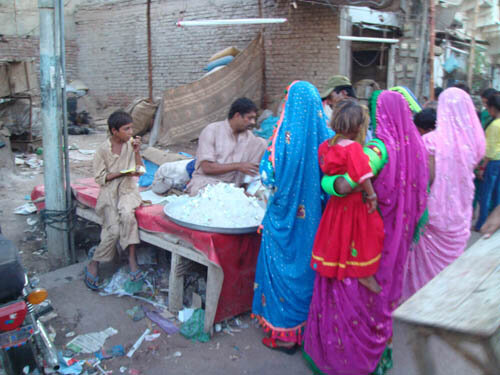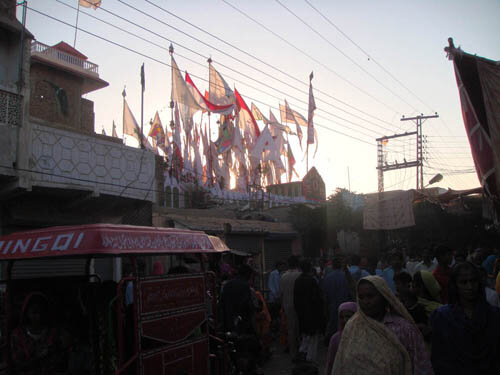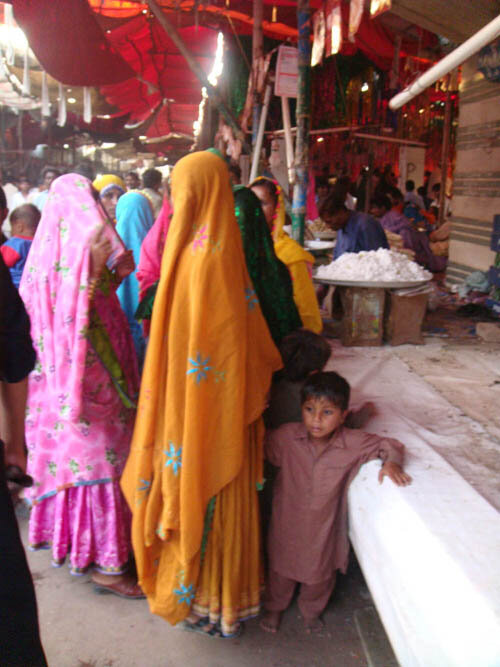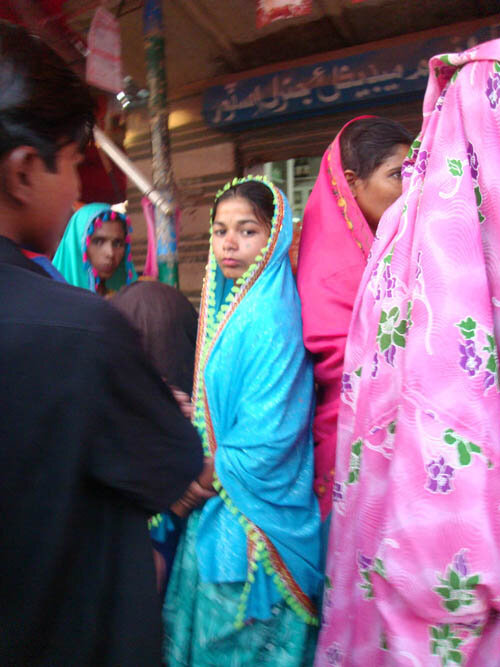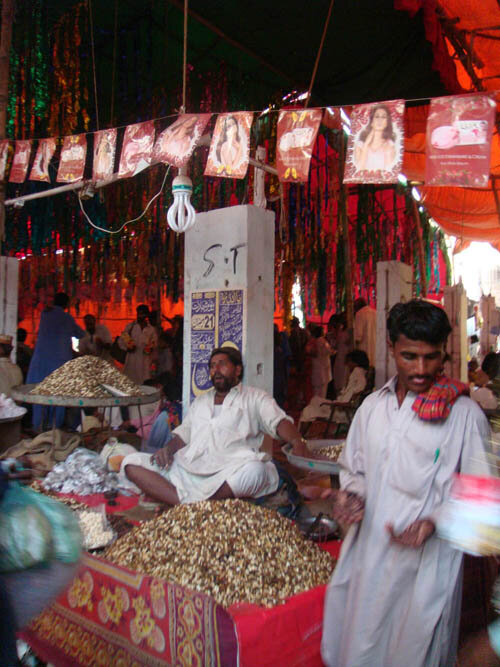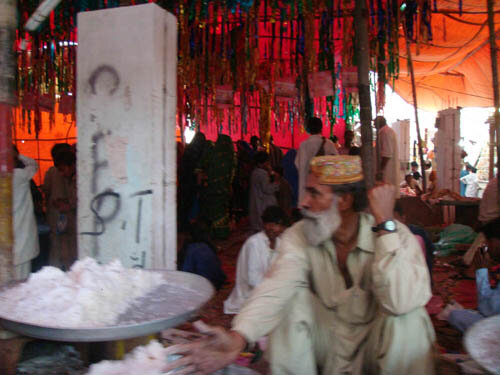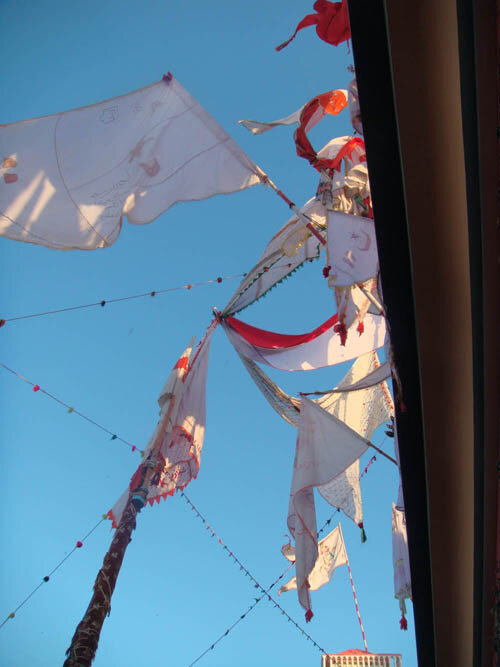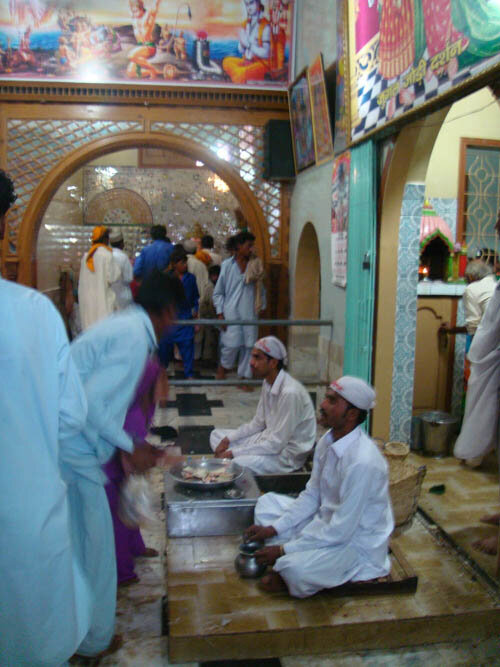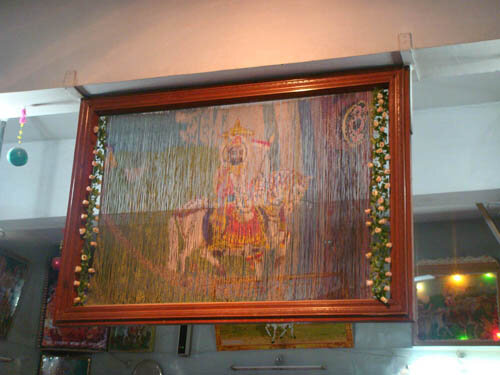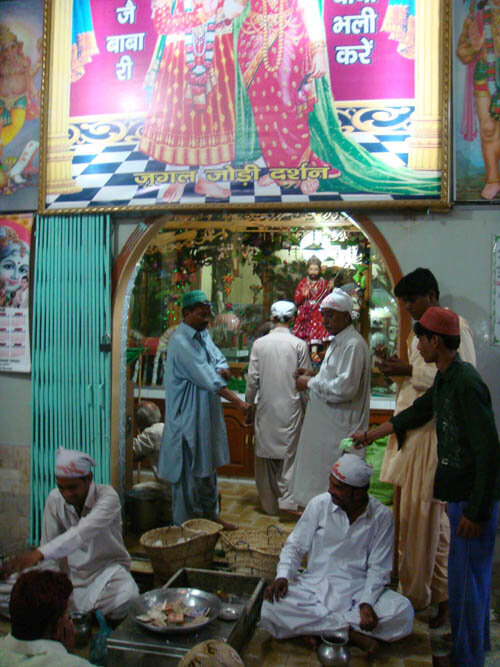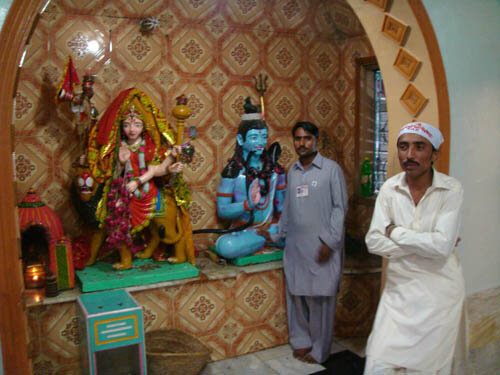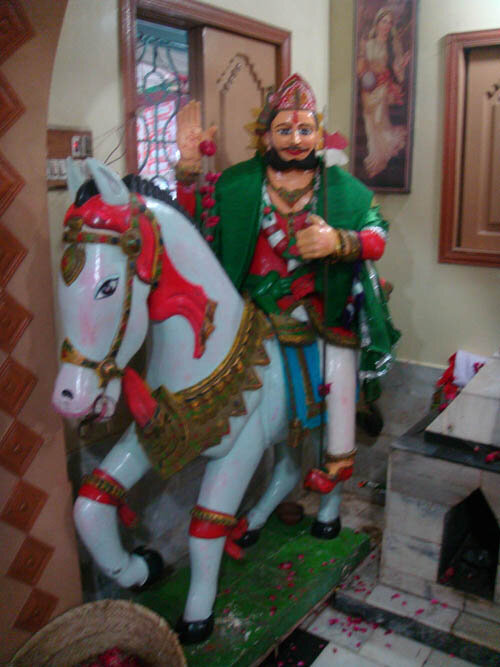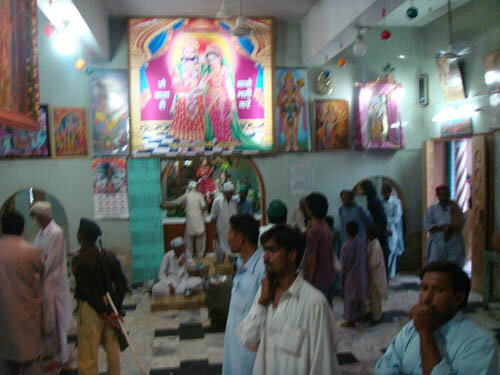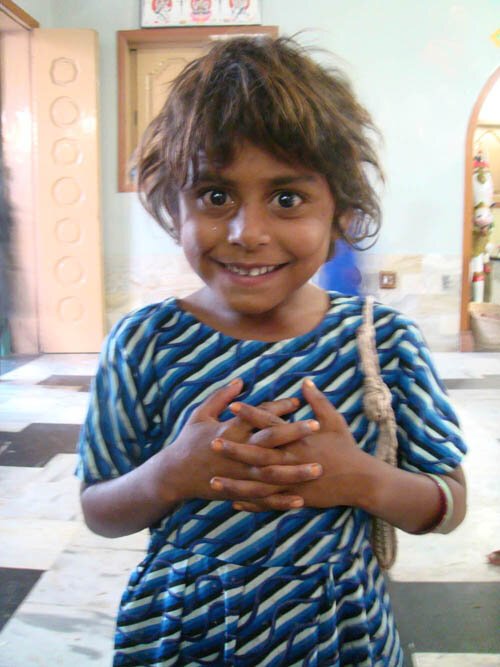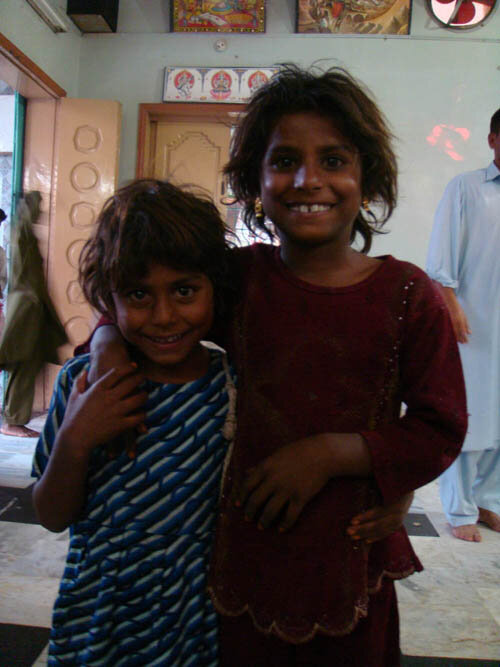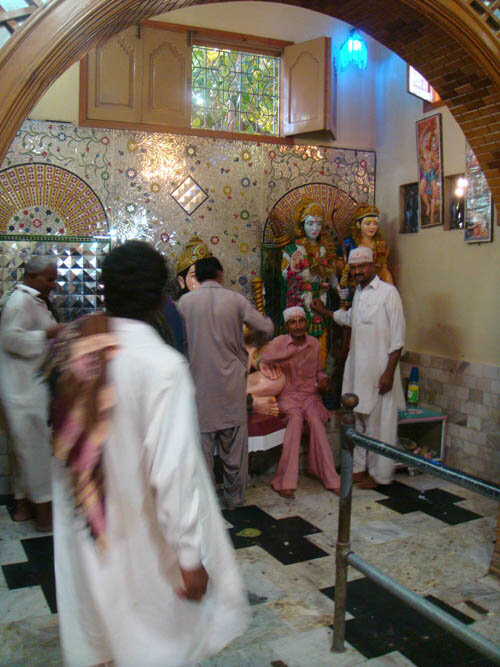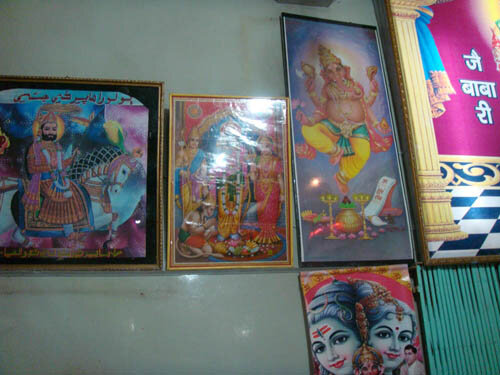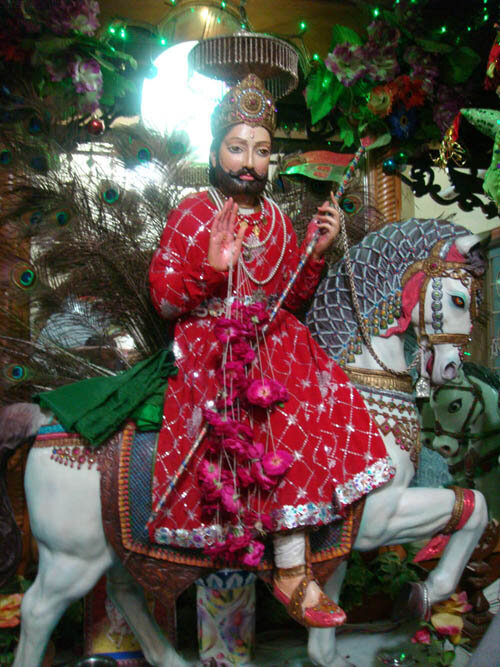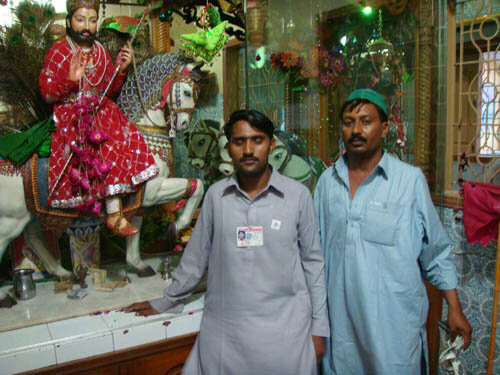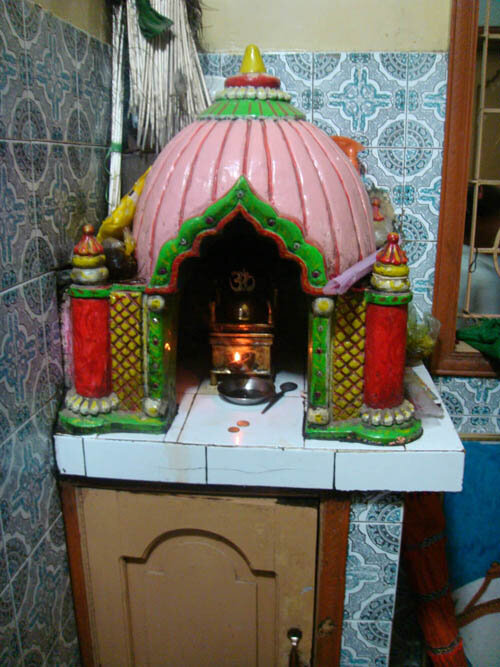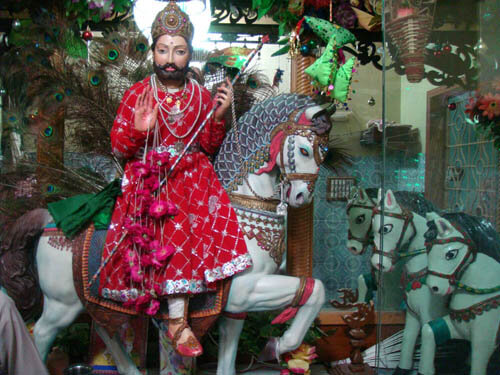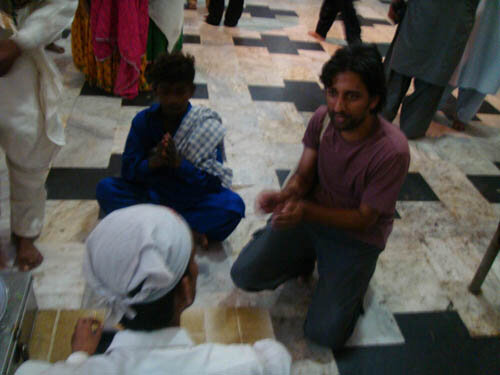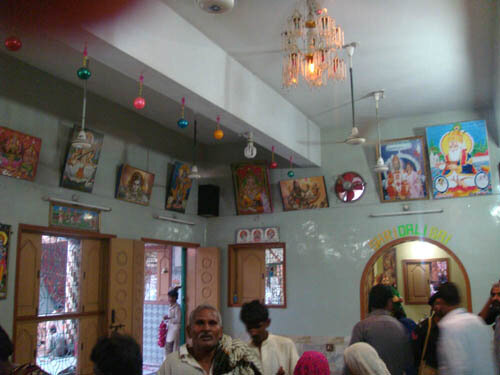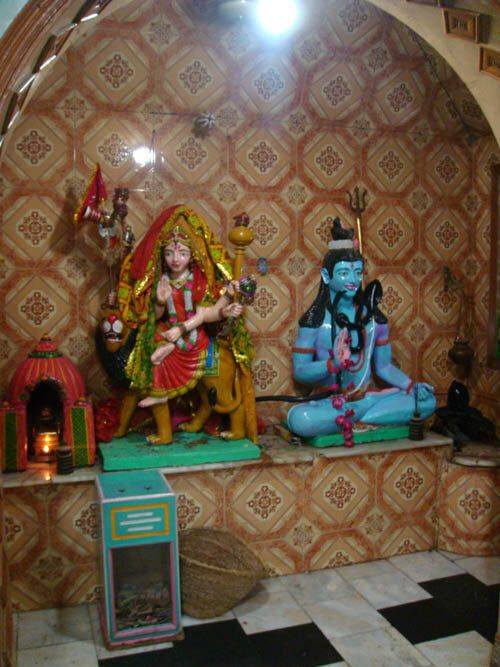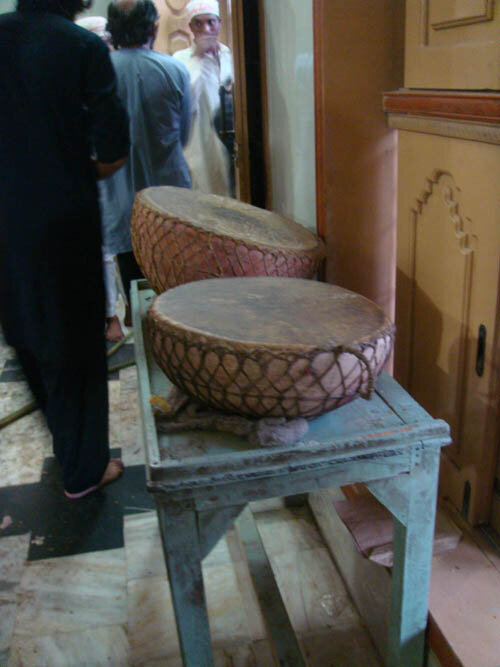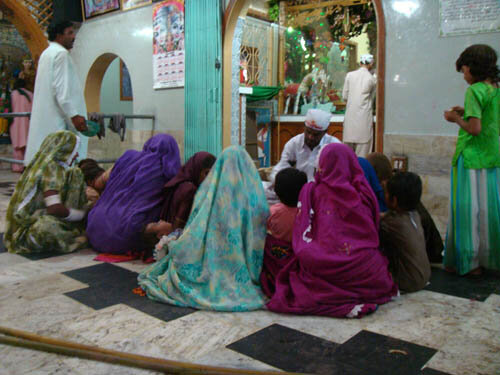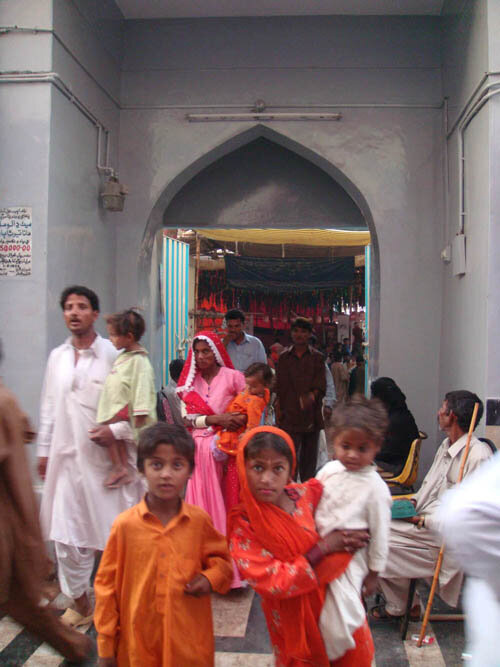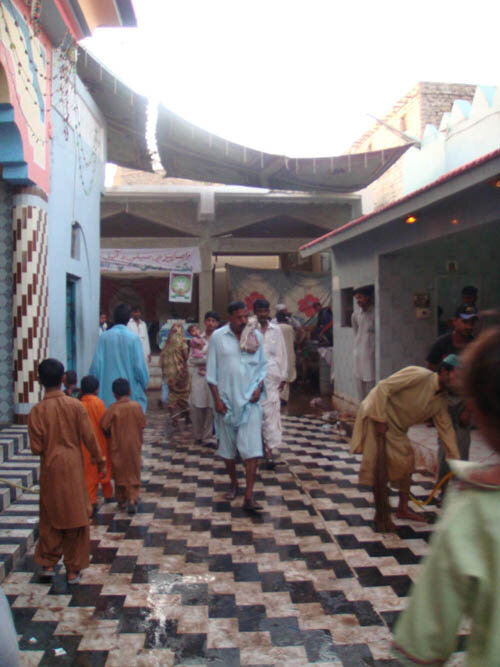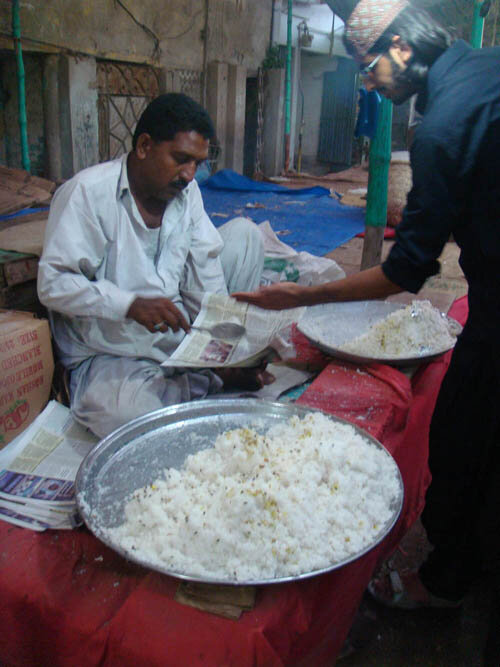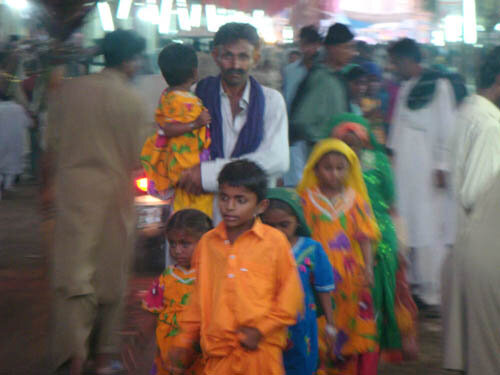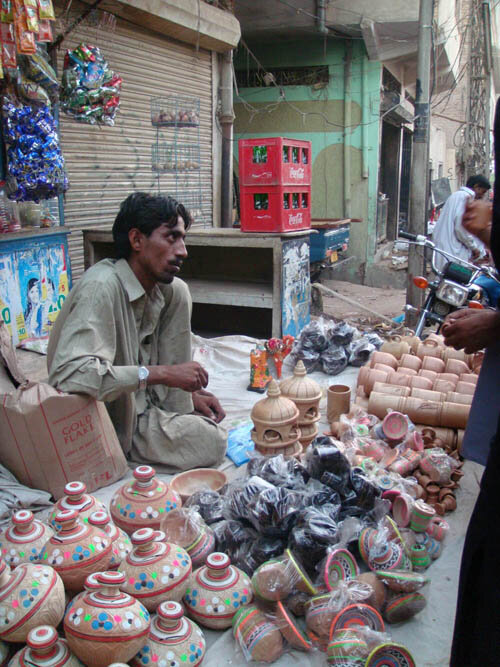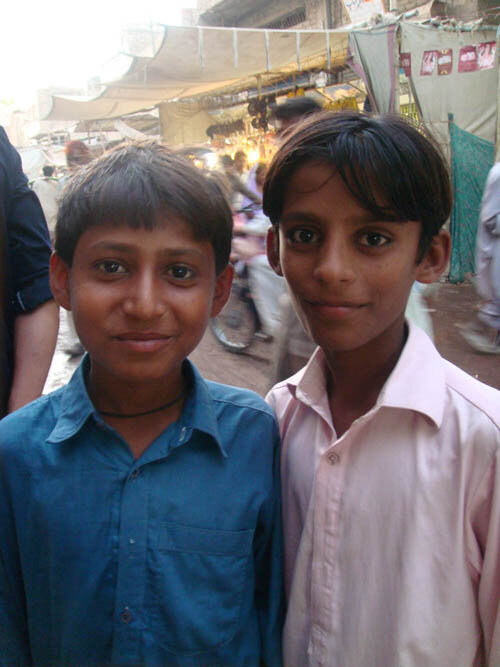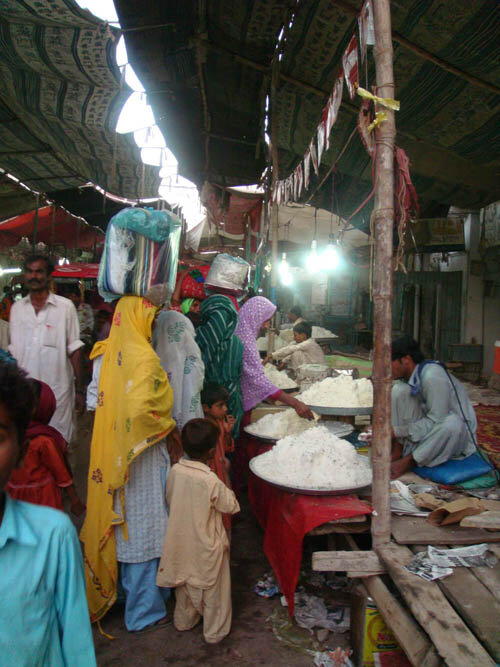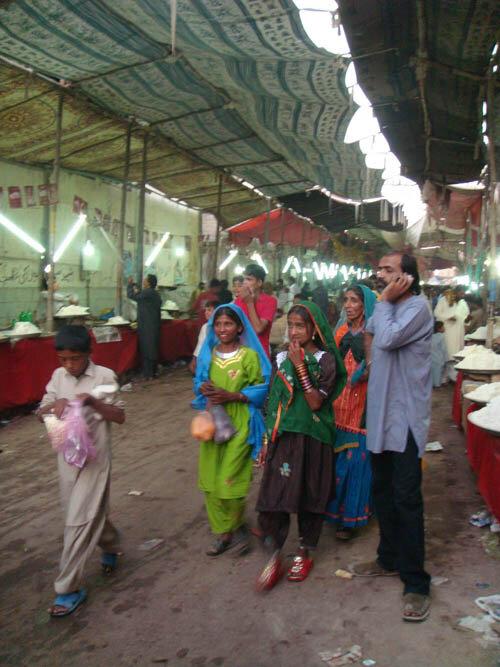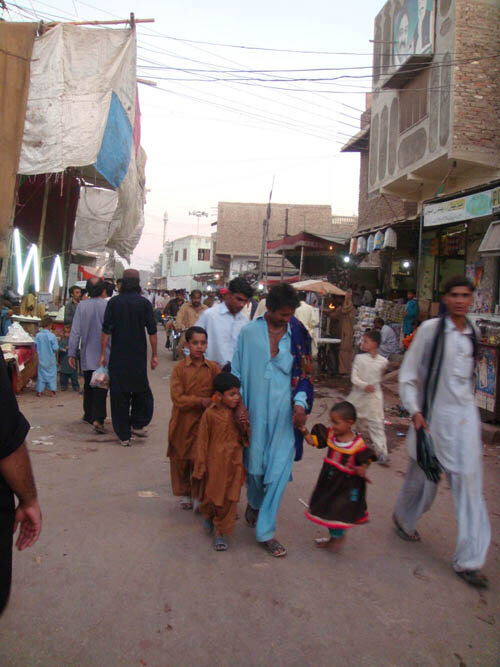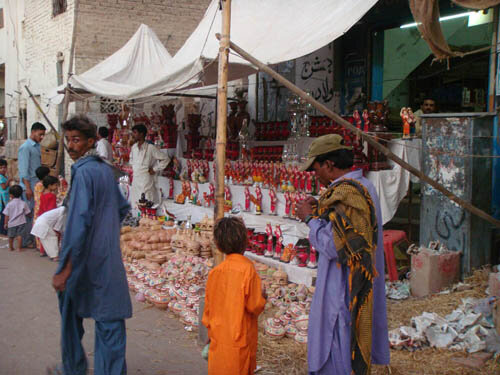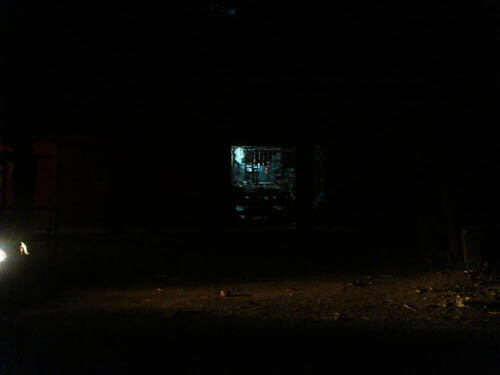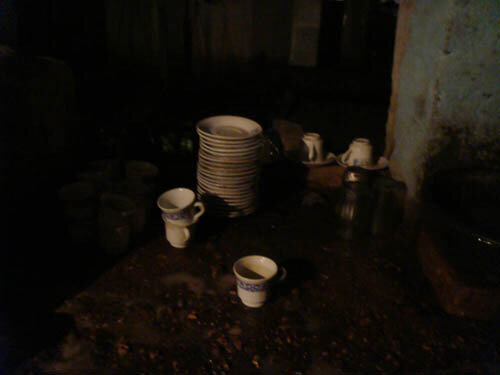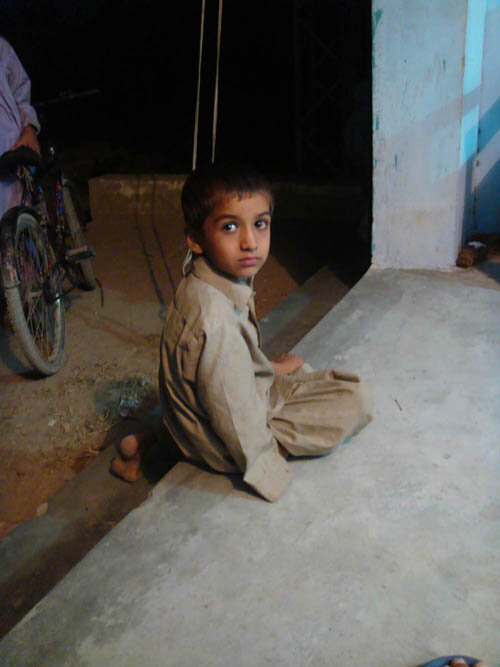1. Going to Sindh - 2. Emperors New Clothes and Sites - 3. Fun Days and Tipping Point - 4. Time Running Out - 5. All Good Now?
Fun Days in Sindh
There were some really fun things that happened while I was staying in the musicians building. I enjoyed walking the streets of old Hyderabad. The market, the old havelis with old plaques from their original Hindu owners, prior to partition were at once beautiful and a sad reminder of the divisions of politics and religion. The architecture was quite different than what I have seen in Lahore.
I met many good people. One of the first nights there, I was invited to accompany the musicians to a performance at the Shrine down the street. Other times there were musicians out on the roof at night, talking, and later performing in a room on the middle level of the building. It was a real treat to sit and enjoy that. I sketched several musicians one night, and that made me some small friends in the children and nephews of an older, blind tabla master. It was challenging to get a read on the whole situation. All the pieces were there, but when it came to the actual work of Gul, all kinds of vagary and stalling seemed to be going on. I wanted to trust the good nature and manners of my host, but there was a turning point one night.A group of musicians was gathered in a room, by an old computer, which was often used to play music for a gathered group as they talked and admired the works of older musical masters of a bygone era. Conversation tended to revolve around an ambitious musical project in the works unrelated to me. I often sat and listened, contributing little, when asked, in deference to the older musicians.A couple of older musicians said something about not wanting to eat out of the same plates and drink from the same glasses as Hindus and Sikhs due to the unhalal meat they eat. As is often the case with bigotry, it comes into a conversation all of a sudden."Humay to un kay saath khaanay ko jee nahee chahta (We don't feel like eating with them)."Talk of how foreign places are feeding haram food through fast food places came from one guy but no one else paid attention. Bigotry makes me furious. I argued with them that those things which are used to divide people and make hatred are vile and that thinking that way is disgusting. I looked around the room, at the old worn faces. Their bigotry to them was matter of fact and harmless. Certainly it was nothing to be angry about in their minds. I felt sick in my stomach. Frustration and stress of not knowing how I would do the music were one thing, but this bigotry was too much. I got up and went up to the room I slept in, pulled out some sheets, and spread them on the floor over the carpet. I was seething with anger and helplessness. I knew what I was there for, but it seemed so far out of reach.I lay down with my headphones on and hoped that music could calm me and get me to sleep eventually. Suddenly three kids were at my doorway. Two were Master Sahib's sons (the tabla player) and one was his nephew. I invited them in and we sat down and talked. I thought it was very sweet that they wanted to hang out. They were really nice kids. The little one, named Waqas was sent out to pick up some gum and supari. He smiled and his brother and cousin were nice to him too. They enjoyed some Kailash Kher on my laptop and then really got into the Rajasthani slide guitar album I played for them. Each took turns listening to one song on their headphones. Each sung along out of tune loudly, but each was nice about handing the others the headphones and to enjoy the music.I told them a little about my recent travels through Central Asia, the beauty of people and about the work I do. They too told me about places they had been to around Sindh and places I should go see in Hyderabad. The one boy mentioned how he had gone to a Mandir (Hindu Temple) and done Pooja also. These are young, illiterate Muslim kids. He spoke of how he prayed there in the Mandir. He was so wise in that he saw the same God's presence in a place of worship of another religion. He reconciled religious views with respect for another religion's place of worship. I didn't lead this conversation. I felt a lot of disgust at the adults below, but when I saw these children walk in, I didn't want to give them that venom. Instead, I said nothing about that, and shared some of my experience meeting different kinds of people in a positive light.All three would talk over each other a little but then ease back and excitedly let each other tell me about places they went and what it was like and the diversity and beauty of people as that is what I had been talking to them about. They took to the point I was making and carried on a conversation with it, unlike many adults. It was a joy to speak to them. I made a sketch of Waqas, who shares my brother's name, and gave it to him. These boys have done some schooling, but are not really literate beyond recognizing letters. They respect and enjoy taking care of their blind uncle (father to two, uncle to one) and sit quietly and obediently listening to the older musicians speak and serve them.They told me about mosques and mandirs and of the interesting long clothes worn by Christians here and of women with bare back shirts in another part of Sindh, talking not of bad or good, but of how nice it is that they are all different and they are fine with the boys coming in pants and shirts so why should the boys complain about how they dress. They said the people in that town are so hospitable, that they invite you in and insist that you eat and stay the night. Then though water is scarce, they give you water and food and dance for you. The next day they will have laid out some gifts for you and water before you even wake up. They cry as you leave as though you were their long departed relatives.I have to say that one conversation with these wonderful children gave me what I needed that night. I guess I opened the doors to them when they were watching me draw the musicians perform and I encouraged them to watch and handed them sketches to look at, rather than push them away. That simple moment gave me the conversation that followed that night and was the boost I needed. There's a lot of ugliness in the world, but a bit of hope from an unlikely source is still more powerful.There were other moments in those days that helped me mentally. Little things, that gave me joy.I hopped on a bus one time, saw a man climb up a few minutes after I sat. The bus was packed and the desert heat was exhausting. A thin little girl in a beautiful embroidered kameez hung from his back with her arms around her father's shoulders. The father came in and sat her down next to me and then sat next to her. He was very loving to her. She was chewing on a piece of sugarcane and her little shoeless feet were flitting around. Her father had his arm around her and then she slept with her head in his lap as the journey went on. I didn't want to disturb the moment, and quietly took a few photos with my camera to one side of the beautiful traditional clothing and the memory of a moment I didn't want to forget.The rickshaw driver who took me on the next part of that outing was blind in one eye, perhaps cataracts? He had a blueish pupil in one eye like master sahib. I said mehrbani (thanks) as I paid him after the ride and said salam. He said "Mehrbani kai kee, aap nai paisay deeya (Thanks for what, you paid me?)," but he appreciated it with his hand on his heart and smiled.I took another bus from there and sat with another man who was blind in one eye (eye was shut) and old and thin. I got off at a stop and picked up some handicrafts at one of the few stores open that day. I learned interesting things about the techniques of block printing and intricate tying for tie dye as well as bleaching designs and coloring them and some step that involved wiping dung.I walked on down the street and met a darzi (tailor) who was in the shop ironing. He had a son with him. It was not his store and almost all other shops around were closed for Friday. I asked if he could sew the two ajrak sheets together. He said everything was closed that day, but told me to have a seat if I had 10-15 minutes and he would do it for me. He did not own the store and was just trying to get some work finished by doing some ironing for free. He asked me how much I paid for the ajrak and gave me some recommendations to get it cheaper from other shops. Though there may have been a legitimate price difference due to cloth quality as there was similar cloth of the same price where I got it from. He was really friendly and made a point to take his time and sew with his foot pedal powered sewing machine. Another son, a bit older had popped in at that point and it seemed they were waiting to go somewhere. Yet the man was kind enough to do his work with care.I asked how much and he said "Jo munasib lagay (Whatever you feel is reasonable)."I said "Nahee yay aap apna kaam jaantai hain, aap batain kya munasib hai (No, you know your work, tell me what is reasonable).He said RS. 50 and I paid him, thanked him and walked on.These were small moments in the scheme of things, but they made all the difference and gave me that second wind I needed to push and make this music happen. I was at a turning point. I knew I was in a dark hole and it was going to take everything I had to get out.1. Going to Sindh - 2. Emperors New Clothes and Sites - 3. Fun Days and Tipping Point - 4. Time Running Out - 5. All Good Now?
